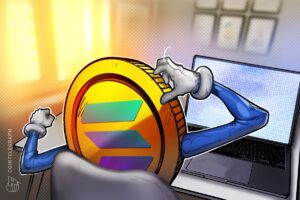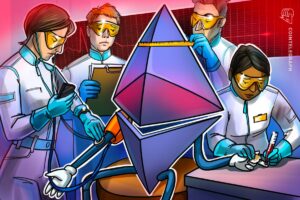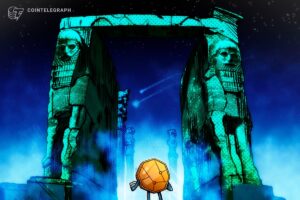ENS’ director of operations says that DAO-based governance ‘has always been the plan’

On Monday, distributed domain protocol Ethereum Name Service, or ENS, launched its own governance token in an effort to distribute voting rights for its new decentralized autonomous organization, or DAO, to active users of the ecosystem.
Cointelegraph spoke with Brantly Millegan, ENS’ director of operations, to learn more about the nonprofit’s decision to shift to a DAO model and his thoughts on the power of the ENS community:
“ENS is an open public protocol. The core components of ENS are decentralized and self-running (e.g., no one can take away another person’s .ETH name), but there are a few things that require some human discretion.”
He noted that previously, ENS was controlled by a four-of-seven multisignature scheme, with members of related projects acting as keyholders. They facilitated upgrades, managed the .eth pricing registration mechanism for domain names and handled the ENS treasury’s funds.
Replacing this multisig and passing ENS governance over to the community via a DAO “has always been the plan,” however, according to Millegan:
“We’re doing it now because we think both ENS and the DAO space have matured enough.”
When users claim ENS tokens allocated in the protocol’s recent airdrop, the service requires participants to immediately vote to ratify the proposed ENS Constitution and to authorize the DAO to take over the functions of the multisig.
Community members are also required to delegate their future DAO voting power before claiming their tokens. The delegate process allows a fewer number of active users to make decisions for the ENS community, rather than necessitating constant interactions from every tokenholder in the space each time a fresh vote is required. Though a large number of ENS contributors volunteered to act as potential delegates, users do not have to choose only from the platform’s suggested list. Rather, they may delegate their votes to any address they’d like, including their own.
Related: Mark Cuban issues burn notice on offensive ENS domain
Concerning ENS token distribution and the operation of a fair governance model, Brantly told Cointelegraph:
“The ENS DAO will [be] one-token-one-vote, but we’ve chosen distribution rules that favor egalitarianism and users over speculators.”
He explained that the nonprofit allocated tokens based on how many days an individual has held even a single ENS name, rather than by the number of domains an individual has registered.
Users who paid renewal fees up to eight years into the future are scheduled to receive an additional cache of tokens in the airdrop, and for folks who have their primary ENS name set, the number of tokens they are otherwise entitled to is multiplied by two. Participants on the protocol’s Discord and Twitter are eligible for additional claims as well.
The DAO will ultimately be in charge of spending any revenue received by the protocol’s nonprofit organization. According to ENS Constitution Article 3, funds are to be allocated to ENS development, the broader ecosystem and public goods within Web 3.0. Millegan noted that “there is no profit sharing motive” and that the token-based DAO system “allows for a large amount of flexibility.”
Within 24 hours of its launch, the new ENS governance token had already reached a fully diluted valuation of $3.16 billion. One day later, at the time of publication, this number has topped $8 billion and continues to rise.












